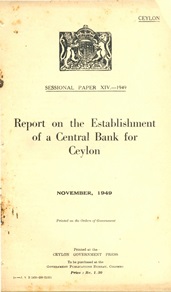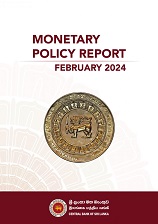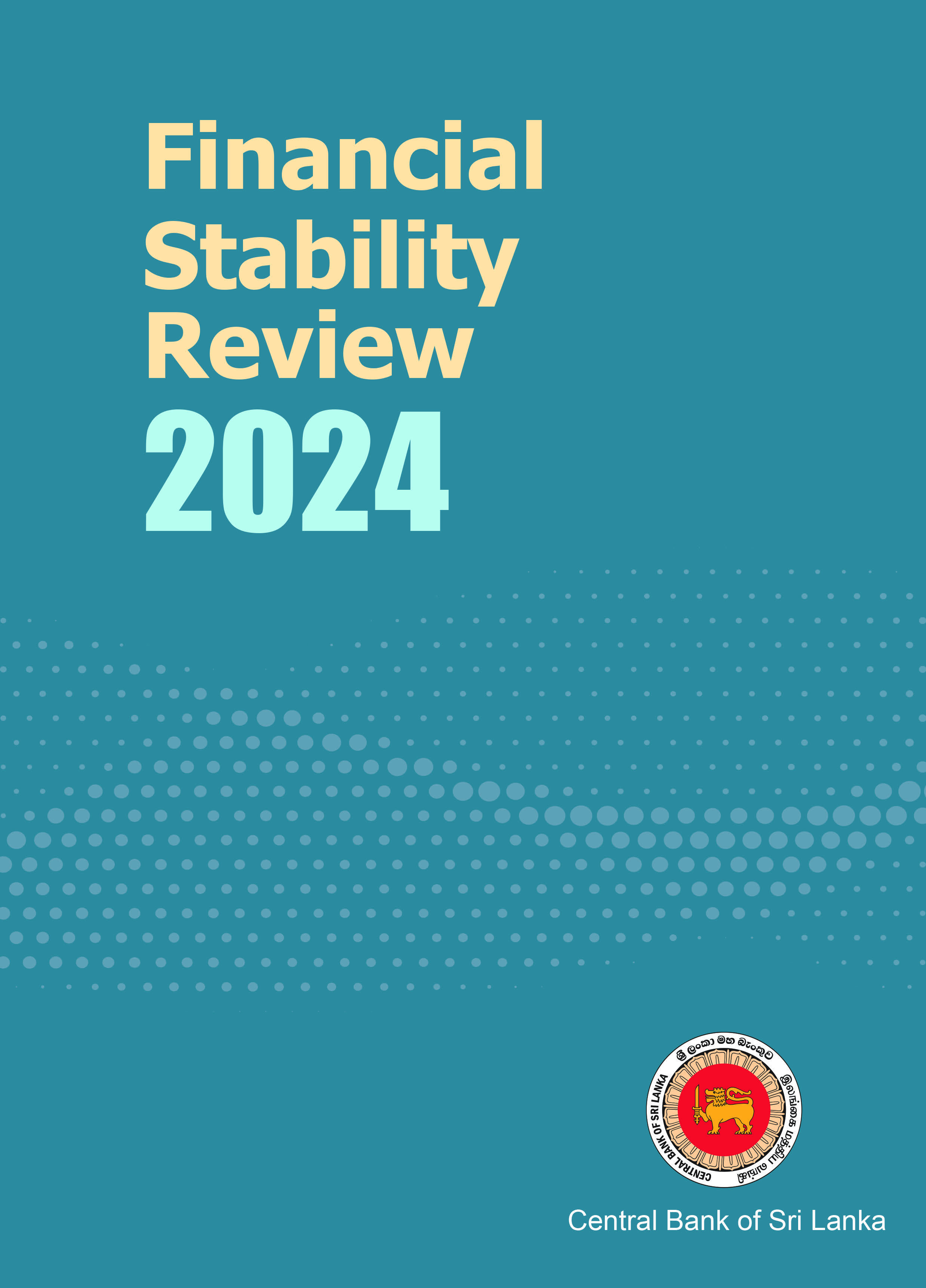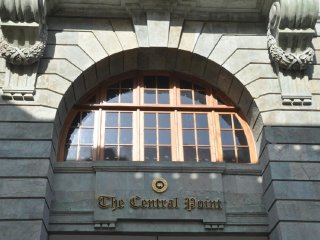Payment and Settlement Systems
Overview
Central Bank of Sri Lanka (CBSL) has been the driving force in the development of national payment and settlement systems in the country. CBSL has taken several initiatives to make payment systems Safe, Secure, Sound, Efficient and Accessible throughout the country.
CBSL is empowered by the Payment and Settlement Systems (PSS) Act to regulate and supervise payment, clearing and settlement systems, prescribing policies and setting standards for regulating and supervising all the payment and settlement systems in the country. In terms of the PSS Act, no legal entity other than CBSL can commence or operate a payment system in Sri Lanka unless authorised by CBSL. The Payments and Settlements Department (PSD) of CBSL which was formed in 2002 executes these functions on behalf of CBSL.
In addition, the CBSL is responsible for the preparation of a plan for the national payment system and for providing guidance and leadership for the establishment and development of the payment, clearing and settlement systems. Furthermore, the CBSL chairs the National Payments Council (NPC) which consists of the main stakeholders in the payment system. The NPC makes recommendations for the development of financial infrastructure in Sri Lanka.
Payment System is about how participants from individuals to banks, governments and international participants exchange monetary value within an economy and across national borders. It is the framework of laws, regulations, mechanisms, systems, procedures and agreements that governs payments.
Payments can be classified into large value and retail value considering the value of the payment and the type of party that initiates the transaction. Large value payments are generally high value payments made by financial institutions whereas retail payments are executed by individuals and are relatively of low value. Large value payment systems are considered to be Systemically Important Payment Systems (SIPS) since a failure of such a system could potentially endanger the operation of the entire financial system. CBSL has mitigated the risk by implementing a RTGS system and thereby allowing financial institutions to settle their obligations on real time securely and irrevocably. Real Time Gross Settlement System together with the government securities (eg. Treasury Bills and Treasury Bonds) settlement system is known as the LankaSettle System in Sri Lanka.
The CBSL is responsible for providing payment and settlement facilities for commercial banks and primary dealers. As the banker to the banks, the CBSL provides settlement account facilities to these institutions which are also participants in the LankaSettle system.
In contrast, retail payment systems are considered to be socially important due to its widespread use in an economy.The CBSL is also responsible for providing facilities for the clearance of retail payments, such as cheques, Sri Lanka Interbank Payment System (SLIPS) and Common Electronic Fund Transfer Switch (CEFTS) for which CBSL has issued regulations and specified maximum fees which can be charged from the customer. The clearing house function for retail payments has been out-sourced to LankaClear (Pvt) Ltd(LCPL), a company jointly owned by the CBSL and commercial banks.
CBSL has also licensed two mobile payment systems intended for low value retail payments and are operating under two telecommunication service providers.
Legal Framework
The Payment and Settlement Systems Act. No. 28 of 2005 (PSSA) provides for the regulation, supervision and monitoring of payments, clearing and settlement systems, the regulation of providers of money services and the electronic presentment of cheques in Sri Lanka.
Payment Card and Mobile Payment Systems Regulations No. 1 of 2013, which was issued under PSSA, provides for the regulations of issuers of payment cards, financial acquirers of payment cards, operators of customer account based mobile payment systems and operators of mobile phone based e-money systems.
Systemically Important Payment Systems (SIPS)
The CBSL operates LankaSettle System (RTGS System and LankaSecure), the systemically important high value payment and securities settlement system. The LankaSettle System has three components i.e. the RTGS System (which processes large value and time critical payment instructions), the LankaSecure System (Scripless Securities Settlement System) and Central Depository of Securities. The integration of the RTGS System and the LankaSecure System provides the most secured securities settlement mechanism based on Delivery versus Payment (DvP) for scripless securities transactions.The LankaSettle and LankaSecure Systems are operated by the PSD of the CBSL.
Inter-bank call money market transactions, government securities market transactions, transactions of open market operations, net cheque clearing transactions, inter-bank retail payment systems and the common ATM switch transactions are the main types of payments settled through the RTGS system.
Real Time Gross Settlement System
The RTGS System is an electronic fund settlement system which processes and settles each payment instruction individually and irrevocably on real time basis using funds in the participants’ Settlement Accounts in the RTGS System. The value of transactions settled in the RTGS System accounts for about 85 per cent of the non-cash payments in Sri Lanka. The majority of RTGS transactions are relating to: transactions in the interbank call money market, Government securities markets, Open Market Operations, the Rupee leg of transactions in the foreign exchange market, urgent payments of customers and net obligations under the clearing systems operated by the LCPL.
As a measure of mitigating the settlement risk, the CBSL provides Intra-day Liquidity Facility (ILF) to participating LCBs and Primary Dealers (PDs), free of charge against collateral of scripless securities in the LankaSecure System.
LankaSecure - Scripless Securities Settlement System (SSSS) and Scripless Securities Depository System (SSDS)
The LankaSecure System comprises of the Scripless Securities Settlement System (SSSS) and Scripless Securities Depository System (SSDS). LankaSecure facilitates the issue of Government securities and Central Bank securities in electronic or scripless form and settlement of trades of such scripless securities on a Delivery versus Payment (DvP) basis. Accordingly, transactions are settled in the system if the participant who sells securities has sufficient eligible securities in his Securities Account in LankaSecure and the buying participant has sufficient funds in his Settlement Account in the RTGS System to pay for the transaction. All securities transactions settled in the system are irrevocable.
The SSDS is the title registry as well as the custodian for Government securities. The ownership of securities is recorded to the beneficiary level in the SSDS. The holders of scripless securities in the SSDS can obtain up to date details of their investments at any point of time through LankaSecure Net, an internet based facility.
Retail payment systems
Cheque Imaging and Truncation System (CITS)
The CBSL provides facilities for the clearance of retail payments, such as cheques, bank drafts and off line fund transfers. In 2002, CBSL authorized LCPL, to provide cheque clearing facilities.
In May 2006, LCPL introduced the Cheque Imaging and Truncation (CIT) System, which facilitates the electronic presentment of cheque images and clearance of cheques. The CIT system introduced a uniform cheque clearing time schedule of T+1 (where T is the day on which LCPL receives the cheque for clearing and 1 is the following business day) throughout the country, enabling LCBs to credit proceeds of cheques to their customers' accounts on the following business day. Under this system, dishonored/returned cheques have been replaced with a Cheque Return Notification (CRN). The net clearing balances under the CIT system are settled twice each business day in the RTGS System.
Technological improvements carried out to CIT System enabled LCPL to extend the cut-off time for accepting cheques for T+1 clearing and advance the inward return submission cut-off time thereby enhancing the efficiency of the CIT System.
Sri Lanka Interbank Payment System
Sri Lanka Inter Bank Payment System (SLIPS) was introduced in 1993 by the CBSL, as an off line retail fund transfer system. With the establishment of LCPL, operations of SLIPS were handed over to LCPL in 2002. SLIPS handles pre -authorized small value bulk payments (direct credit and debit transfers). In 2010, SLIPS was upgraded with enhanced features and security to an on-line interbank payment system to facilitate settlement of transactions on T+0 basis in 2 processing cycles daily. Accordingly, SLIPS Transactions are cleared electronically on a multilateral net settlement basis and interbank net balances arising from SLIPS transactions are settled in the RTGS System in two cycles on each business day.
US Dollar Cheque/Draft Clearing System
LCPL also operates US dollar cheque/draft clearing system to clear both cheques/drafts of foreign banks drawn on their ‘Nostro’ accounts with commercial banks in Sri Lanka and cheques/drafts issued in favour of customers by commercial banks in Sri Lanka.
Under the traditional USD dollar cheque/draft clearing mechanism, it took more than three weeks to credit customers. To overcome the lengthy clearing process, LCPL launched USD Draft Clearing System in 2002. As a result, the time taken to clear USD drafts was reduced from three weeks to three days (T+3).
With a view of continuously improving the services provided to its members, LCPL launched the US Dollar Draft Online Image Transfer System (UITS) in July 2019. UITS is functioning as a web based online clearing system and eliminates the requirement of physically presenting USD dollar cheques/drafts for clearing. With the implementation of UITS, the time taken to clear US dollar cheques/drafts has been further reduced from T+3 to T+1.
Sri Lanka Interbank US Dollar On-line Payment System
Sri Lanka Interbank US Dollar On-line Payment System is an online interbank USD fund transfer system. It is used to carry out interbank US Dollar payments by digitally signed files through LCPL. LCPL routes transactions from the originating bank to the receiving bank. Further LankaClear creates a settlement file to update the participating Banks’ accounts at the settlement bank.
Sri Lanka Interbank US Dollar On-line Payment System went live on 22nd July 2015 with the participation of seven licensed commercial banks in Sri Lanka.
Sri Lanka Interbank US Dollar Payment System offers lower per transaction cost for Banks and Customers, Enhanced turnaround time and prompt in-time zone settlement enhancing efficiency of transactions.
Common Electronic Fund Transfer Switch (CEFTS)
The Common Electronic Fund Transfer Switch (CEFTS) is operated by LCPL under a recommendation of the National Payments Council and the approval of the CBSL. It supports on-line real time fund transfers/payments between CEFTS Members to enable bank customers to initiate transactions at any given time of the day and to make payments through ATMs, mobile phones, internet etc. even during non-banking hours.
Common Electronic Fund Transfer Switch (CEFTS) supports real time bank transfers for payments within seconds and electronic payments to be done by customers 24×7 and 365 days of the year. Although CEFTS payments are credited to customer accounts on a real time basis, interbank settlement takes place in two cycles in the RTGS System on each business day.
Payment Cards and Mobile Payment Systems
Payment Cards and Mobile Payment Systems Regulations No. 1 of 2013 (Regulation) provide CBSL with the necessary authority to regulate service providers of payment cards and mobile payment systems in Sri Lanka. As per the provisions of the Regulation, no person can engage in the business or function as a service provider of payment cards or mobile payment systems except under the authority and in accordance with the terms and conditions of a license issued by the CBSL. Accordingly, CBSL issues licenses to institutions to function as card issuers and financial acquirers. In addition, licenses are issued to financial institutions and mobile network operators to function as operators of customer account based mobile payment systems and operators of mobile phone based e-money systems, respectively.
Other Payment and Settlement Infrastructures
Equities Trading System and Debt Securities Trading System
The Colombo Stock Exchange operates two on- line systems: i.e. the Automated Trading System (ATS) for real time trading of equity (shares) and the Debt Securities Trading System (DEX) for trading of beneficial interest of Government Securities and corporate debt securities. Stockbrokers licensed by the Securities Exchange Commission (SEC) perform as direct participants in the ATS and DEX.
Common ATM Switch
Common ATM Switch (CAS), the first phase of the Common Card and Payment Switch, is operated by LCPL under a recommendation of the National Payments Council and the approval of the CBSL. ATM /Debit cardholders of the member banks of CAS are able to use any ATM terminal of such banks across the country for withdrawing money or inquiring account balances. CAS is linked to ATM switches of member banks to facilitate transaction switching from ATMs of CAS members. CAS started live operations on 23 July 2013. The net clearing balances of CAS are settled in the RTGS System in two cycles on each business day.
Shared ATM Switch
Shared ATM switch (SAS), the third phase of the Common Card and Payment Switch, is operated by LCPL under a recommendation of the National Payments Council and the approval of the CBSL. SAS is developed to provide ATM transaction routing together with the card Management System facility to any member bank eliminating the need to own an ATM switch by each and every bank or financial institution.
LANKAQR
CBSL has undertaken many initiatives in its digital journey to contribute towards the benefit and development of the country whilst facilitating a less cash society. In an endeavour to support national digital priorities, CBSL introduced the LANKAQR Code initiative, the national QR Code Standard, which provides a digital payment solution as an alternative channel for initiating and accepting payments, using mobile devices.
The LANKAQR code standard will also promote customer convenience, security and ensure interoperability of different payment mechanisms and instruments. The usage of LANKAQR codes for payments eliminates the requirement for customers to carry cash or payment cards and for small merchants to invest in high cost Point-of-Sale (POS) devices. In addition, merchants need not pay high fees to acquiring banks to process transactions. Therefore the payment industry and the general public will benefit immensely from having the LANKAQR code based payment facility in the country.
By adopting LANKAQR to initiate payments, financial institutions will be able to provide access to low-cost and secure digital payments to customers and merchants. In addition, the standardised QR code will eliminate a multitude of QR codes being displayed by merchants, creating interoperability issues. Further, this initiative will promotedigital transactions, reduce cash management costs, facilitate financial inclusion, and also formalise the informal sector.
Customers and merchants who are interested in joining the LANKAQR initiative are requested to contact the financial institution in which they maintain their accounts.
FinTech Regulatory Sandbox Framework
Financial Technology Regulatory Sandbox of the Central Bank of Sri Lanka - Framework
Related Information
Relevent Acts
Central Bank of Sri Lanka Act, No. 16 of 2023
Payment and Settlement Systems Act No 28 of 2005
LankaSettle System Rules - Version 2.2










